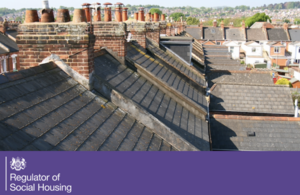RSH publishes quarterly survey for Q3 (October to December) 2022-2023
The social housing sector has strong liquidity and continues to attract new finance. However, wider economic pressures are impacting on providers’ finances.

The Regulator of Social Housing has today (2 March 2023) published the results of its latest quarterly survey of private registered providers’ financial health.
The report covers the period from 1 October 2022 to 31 December 2022. It shows that the sector has strong liquidity and continues to attract new finance. However, wider economic pressures – including inflation, higher borrowing costs and a softening housing market – are impacting on providers’ finances.
Providers spent £1.7 billion on repairs and maintenance by the end of December, which was 8% above the previous quarter and among the highest quarterly totals on record. However providers reported that material and labour shortages continued to cause delays to repair programmes.
Providers report that average interest cover from operating cashflows, excluding sales, was 102% in the 12 months to December, the lowest level on record. Providers expect to see average interest cover drop further to 93% over the next year. This is mainly a result of higher spend on repairs and capital investment, as well as rising interest costs.
The sector secured £3.4 billion in new finance in the quarter, with bank facilities at their highest level for six years. Total agreed borrowing facilities stood at £121.8 billion, up £2.1 billion from the previous quarter. Mark-to-market exposure on derivatives remained low, with current gross exposure of £0.3 billion.
Providers invested £3.8 billion on building and acquiring new homes in the quarter. This was significantly higher than the previous quarter and above forecasts for contractually committed schemes. Investment of £16.6 billion is forecast for the next 12 months (compared to £17.3 billion forecast in September 2022), with £11 billion contractually committed.
Will Perry, Director of Strategy at RSH, said:
Social housing providers continue to attract private finance and invest heavily in new and existing homes. But they are facing significant economic headwinds which, combined with higher spend on repairs, are impacting on the sector’s finances.
Providers need to take a strategic approach to managing these risks, so they can continue to deliver their objectives and ensure that their tenants are living in safe, good-quality homes.
The regulator’s quarterly surveys are available on its website.
ENDS
Notes to editors
-
The quarterly survey provides a regular source of information about the financial health of private registered providers, in particular with regard to their liquidity position.
-
The quarterly survey returns summarised in the report cover the period from 1 October 2022 to 31 December 2022. The latest report is based on regulatory returns from 203 PRPs and PRP groups which own or manage more than 1,000 homes.
-
Additional disclosures have been added to the quarterly survey return from April 2022: new lines have been added to the cashflow statement to provide an enhanced breakdown of sales receipts and repairs costs, and narrative questions regarding delays or changes to repairs and maintenance programmes have been introduced.
-
For press office contact details, see our media enquiries page. For general queries, please email enquiries@rsh.gov.uk or call 0300 124 5225.
-
The Regulator of Social Housing promotes a viable, efficient and well-governed social housing sector able to deliver homes that meet a range of needs. It does this by undertaking robust economic regulation focusing on governance, financial viability and value for money that maintains lender confidence and protects the taxpayer. It also sets consumer standards and may take action if these standards are breached and there is a significant risk of serious detriment to tenants or potential tenants.